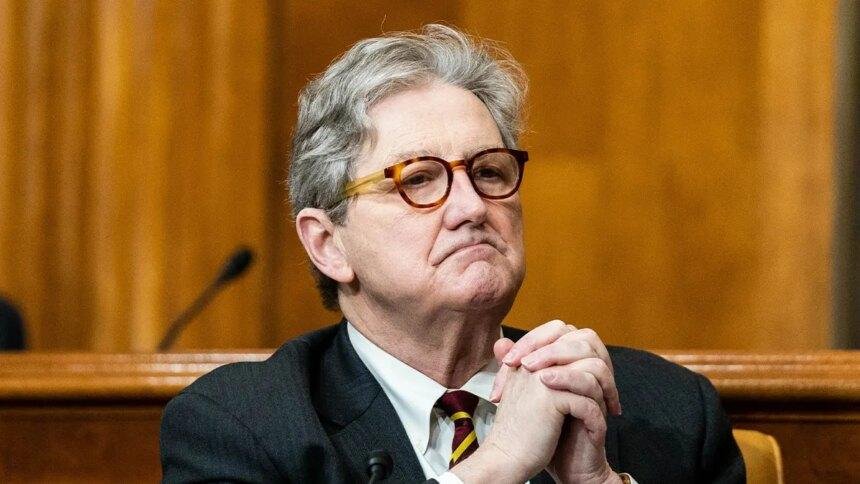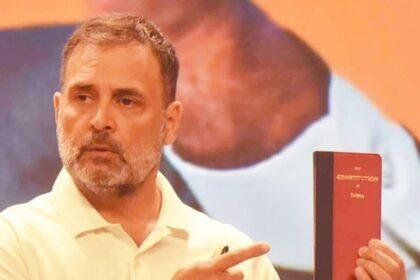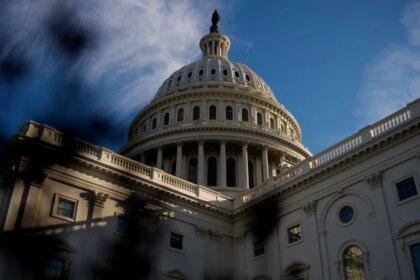Government Shutdown Standoff: Democrats and Republicans Clash Over Funding Demands
As the U.S. government faces a potential shutdown, tensions are escalating between Senate Republicans and Democrats over funding priorities. The impasse centers on a range of issues, including healthcare subsidies and foreign aid, with both parties accusing each other of obstructing progress.
The Standoff: Key Players and Positions
Senate Minority Leader Chuck Schumer, a Democrat from New York, has taken a firm stance, asserting that any agreement to reopen the government must include an extension of expiring tax credits related to the Affordable Care Act (ACA). This position has drawn sharp criticism from Senate Republicans, particularly Senator John Kennedy of Louisiana, who claims that Democrats are leveraging the situation to push for unrelated funding initiatives.
Kennedy has accused his Democratic colleagues of demanding “tens of millions of dollars” for various projects, including foreign aid for LGBTQ initiatives, cooking classes, and electric buses. He specifically pointed to funding allocations that he believes are emblematic of a broader agenda driven by the “socialist wing” of the Democratic Party, which he attributes to figures like Representative Alexandria Ocasio-Cortez.
The Democratic Response
In response to Kennedy’s allegations, Ocasio-Cortez dismissed the notion that she is orchestrating the Democrats’ strategy. She characterized the claims as “ridiculous” and emphasized that the responsibility for the shutdown lies with Republicans. “They are negotiating with Chuck Schumer and Hakeem Jeffries and Democratic leadership, and Democrats are united to that end,” she stated in an interview with NBC News.
The ongoing debate highlights a significant divide within Congress, with Democrats insisting on the necessity of healthcare funding while Republicans focus on what they perceive as excessive spending on social programs. This clash is reminiscent of previous government shutdowns, where partisan disagreements over budgetary priorities have led to prolonged standoffs.
Funding Controversies: A Closer Look
Kennedy’s accusations included specific figures, such as $4.2 million earmarked for LGBTQ programs in the Western Balkans and Uganda, and $3.6 million for pastry cooking classes in Haiti. He also mentioned funding for media organizations serving Palestinians and health services in Zambia. These claims have sparked debate over the appropriateness of such expenditures, especially in the context of a government shutdown.
While Kennedy’s office did not provide detailed sources for these funding claims, the broader implications of foreign aid and domestic spending are significant. Historically, foreign aid has been a contentious issue in U.S. politics, often viewed through the lens of national interest versus humanitarian obligations. The current debate reflects ongoing tensions regarding how taxpayer dollars are allocated both domestically and internationally.
The Democrats’ Counter-Proposal
In their counter-proposal to the Republicans’ continuing resolution, Senate Democrats have outlined several key demands. These include a permanent extension of healthcare premium subsidies, increased security funding for lawmakers, and a repeal of certain provisions from the rescissions package that canceled billions in foreign aid earlier this year. Notably, their proposal does not seek to reverse the broader rescissions package, which has been a point of contention.
Schumer has emphasized the importance of protecting healthcare for Americans, stating, “We have asked Republican leaders for months to sit down and talk to us. They’ve refused and barreled us into a shutdown.” This sentiment underscores the urgency felt by many Democrats, who view the ACA as a critical component of their legislative agenda.
Historical Context: Government Shutdowns in the U.S.
The current standoff is not an isolated incident; it is part of a broader pattern of government shutdowns in U.S. history. The most notable shutdowns have often stemmed from deep ideological divides, particularly over issues like healthcare, immigration, and budgetary priorities. The 2013 shutdown, for example, was largely driven by Republican opposition to the ACA, while the 2018-2019 shutdown was centered around funding for a border wall.
These historical precedents serve as a backdrop for the current negotiations, illustrating how partisan politics can lead to significant disruptions in government operations. As the deadline for a potential shutdown looms, both parties are under pressure to find common ground.
Conclusion: The Path Forward
As the government shutdown deadline approaches, the stakes are high for both parties. The ongoing negotiations reflect not only immediate budgetary concerns but also broader ideological battles that have characterized U.S. politics in recent years. With healthcare and foreign aid at the forefront of the debate, the resolution of this standoff will likely have lasting implications for future legislative efforts.
Both sides must navigate the complexities of their respective positions while considering the potential consequences of a government shutdown. As history has shown, the path forward will require compromise and a willingness to engage in constructive dialogue. The American public will be watching closely as this critical situation unfolds.











